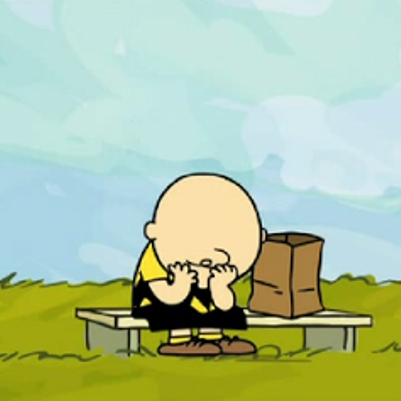
Chuck may have been onto something there.
A dissertation on grief may likely, in fact, be a bottomless suitcase that could be unpacked til the end of time. And, time would probably win before you got to the bottom of it all.
When presented with this expanse of perception, I choose to let go of understanding what is. I say “perception” because that’s what experience and emotion is. That’s really what most experiences are; how we perceive them to be. Often, however, our emotional reaction leads us into the perception of whatever it is we’re experiencing. If something feels negative, like grief, our perception of it translates into something bad. Something we don’t want. Something that doesn’t appear to be useful or productive. And, when I find that I encounter an experience that can encompass a whale-sized amount of emotion and perception, I do my best to let go of understanding it all. The left brain has a hard time on these waters.
The void exposed with a lack of understanding is filled with feeling. But, it’s not emotional feeling that fills the space, rather it’s foundational feeling. Emotional feeling is very reactive; it’s very in-the-moment, which is not to say it can’t last for an indeterminate amount of time. We can, certainly, have an in-the-moment response to something that lasts much longer than that specific moment. What foundational feeling is, is the layer beneath where the emotional response came from; it’s like understanding by feeling. It’s not the reactive type. It’s, actually, stronger and more telling. Probably more complex. However, maybe as simple to undercover as to ask yourself the question, “why am I really feeling this?”. There’s a likely opportunity that the answer you receive to that question being a different feeling than the feeling you’re actually outwardly experiencing. The challenge is that when we are grief stricken, we won’t be able to hear an answer much other than that of the grief.
We all have an opportunity to grieve, always.
Perception. Grief is our emotional feeling response to something happening that we didn’t want or plan to happen. It’s our emotional feeling response to a change that we perceive to be negative; the loss of a job, heartbreak, death of a loved one. I’m certainly not here to debate any of those life events to be bad or not bad. Nor am I here to convince anyone that the emotions brought about by any of those to be unfounded or unwarranted. None of those instances are good. I do not think or believe otherwise. They can be confusing, hurtful, debilitating, depressive and, sometimes, unrecoverable.
What I want to challenge is that it’s not the actual event or experience that causes us suffering, it’s the perception. What if grief were good? What if it represented growth and progress? What if it signified movement into a further emotional evolution? You would still experience grief, and should still experience grief, but would remove the negative association from it. Grief is borne by attachment. It may sound callous and cold, but grief is our autonomic response to the involuntary severing of an attachment. Rightfully, it’s not going to feel good. When life seems to be out of our control, the feeling is often not one of peace and positivity. Even in the instance whereby the deattachment is of our choosing, pain will usually still follow. It is because of our response to the loss of the connection. It’s real. The dissection of the mechanism of grief is not an attempt to be robotic; the attachment is true. The disconnection of the hardwired maps in our brains and hearts disrupts what is familiar. It upsets what we are used to. That’s just human reality on the plane of this existence. It’s important to live through it. It’s part of having a mind and a heart. The goal is not to become desensitized to grief, but rather the exact opposite. It’s too get more acquainted with it. So acquainted with it that you shift past the emotional feeling layer and delve deeper into it. Willingly. With self Love and self care.
I say that “we all have the opportunity to grieve, always”, because grief is about change. We experience change everyday in any number of ways we perceive and do not perceive. When change pulls grief from us, we live there, for whatever duration, with whatever fierceness. There is neither a right or wrong to it. Grief is not something to be circumvented or sped through. Grief, perhaps, can be about understanding. But, I know for sure it is about feeling. There is spirituality in grief. And, on the spiritual path, which we all travel to some degree throughout our lives, there is no “like” or “don’t like”. We see the path for what it is trying to teach us. Because we choose to like or dislike what the lesson is, doesn’t change the lesson. And so, maybe the lesson behind grief is change and not to change the lesson of grief?
Be Love.



